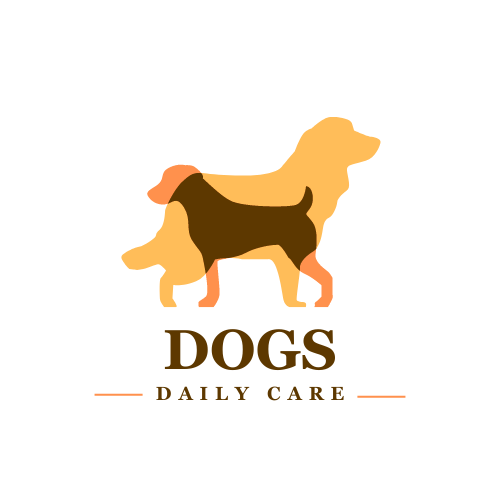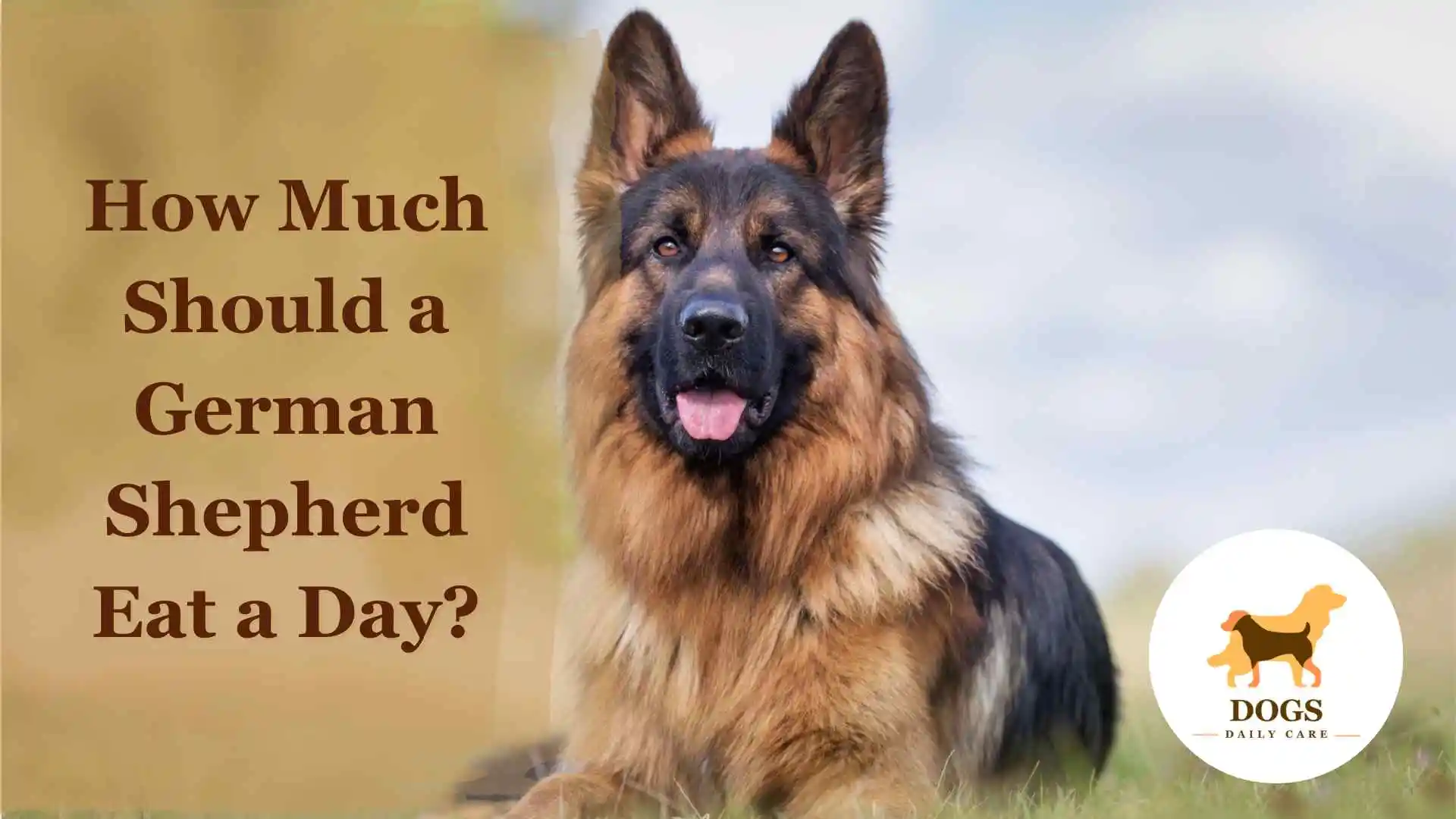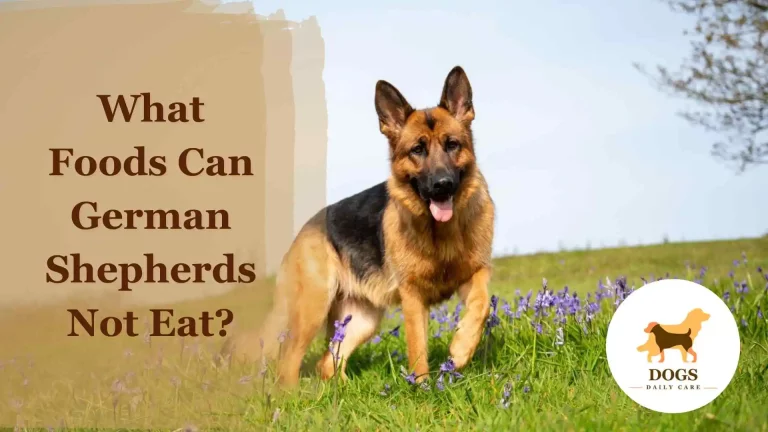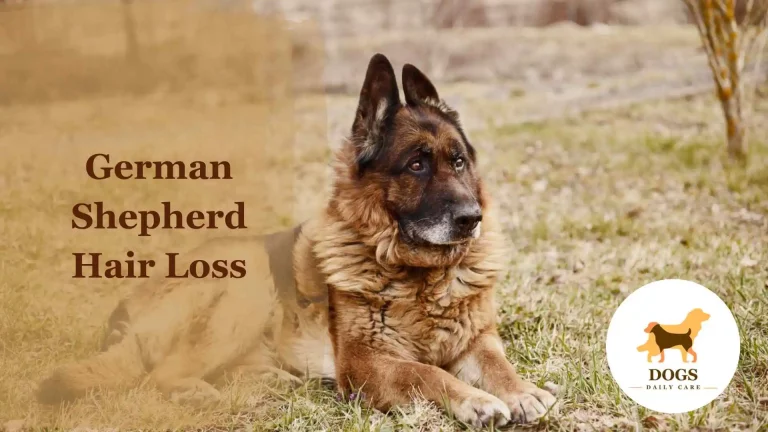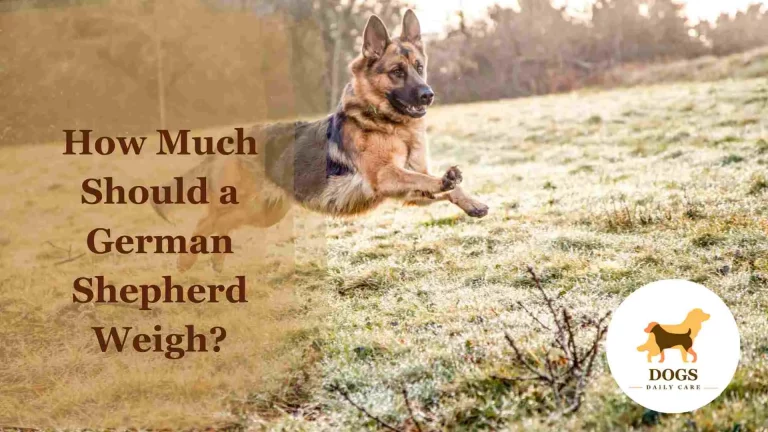How Much Should a German Shepherd Eat a Day?
If you’re the proud owner of a German Shepherd, you know that these energetic and intelligent canines are always on the go. Whether they’re herding, playing, or protecting, proper nutrition is key to ensuring they live a long, healthy life. But with so much conflicting information out there, it’s challenging to determine exactly how much your German Shepherd should eat in a day.
Understanding the nutritional needs of a German Shepherd is crucial, not just for their immediate well-being but also for their long-term health. Factors like age, activity level, and specific health conditions can all influence your dog’s dietary needs, making a one-size-fits-all approach ineffective.
That’s why we’ve put together this comprehensive guide to help you navigate the often confusing world of canine nutrition. From portion sizes to the types of foods you should avoid, we’ll cover everything you need to know to keep your German Shepherd happy and healthy. So, let’s dig in!
Why Nutrition is Crucial for German Shepherds?
Nutrition isn’t just about filling your German Shepherd’s bowl with food; it’s about providing the fuel that powers their active and alert lifestyle. German Shepherds are known for their incredible intelligence, agility, and versatility. They often serve in roles that demand peak physical and mental performance, such as police work, search and rescue, and even acting. A balanced, nutrition-rich diet is essential for them to function at their best.
The right nutrition can significantly impact a German Shepherd’s quality of life, affecting everything from their coat’s sheen to their joint health. For instance, essential fatty acids can keep their fur glossy and skin healthy, while the proper balance of calcium and phosphorus supports robust bone development. Feeding your German Shepherd a diet lacking in essential nutrients can result in a host of health issues, including digestive problems, dull fur, and decreased energy levels.
Providing a balanced diet from an early age sets the stage for long-term health, helping to prevent obesity, diabetes, and joint issues that German Shepherds are prone to developing. In short, the right nutrition is an investment in your dog’s longevity and happiness, ensuring that they remain an active, integral member of your family for years to come.
Factors Influencing a German Shepherd’s Diet
When setting a meal plan for your German Shepherd, it’s not as simple as following a standard chart. Just as humans have varying dietary needs, so do our furry friends. German Shepherds, with their robust frame and active nature, have specific factors that can influence their nutritional requirements. Let’s delve into the primary factors to consider:
1. Age
A German Shepherd’s life can be broadly categorized into three stages – puppy, adult, and senior. Each stage has its unique dietary requirements. Puppies, for instance, require more protein and calories to support their rapid growth, while seniors might need fewer calories but more joint-supporting nutrients.
2. Activity Level
An active police dog or a German Shepherd engaged in agility sports will undoubtedly need more calories and protein compared to a mostly sedentary household pet. It’s essential to align the diet with the dog’s daily activity to prevent weight gain or loss.
3. Health Conditions
Special health conditions such as allergies, diabetes, or joint issues can dictate specific dietary choices. For instance, a dog with a sensitive stomach might need a grain-free diet, while one with joint issues might benefit from supplements like glucosamine.
4. Weight
Just like humans, a dog’s current weight plays a significant role in determining dietary needs. Overweight dogs might need a diet that’s lower in calories but rich in essential nutrients, while underweight ones may require a more calorie-dense diet.
Tailoring your German Shepherd’s diet with these factors in mind ensures they get the right nutrition tailored to their individual needs. Remember, a well-fed German Shepherd isn’t just about quantity, but also about the quality and appropriateness of their diet.
How to Measure Portion Sizes?
Knowing how much to feed your German Shepherd is half the battle; the other half is accurately measuring those portions. Proper portion control is critical to prevent overfeeding and ensure that your canine companion gets just the right amount of nutrients. So how do you go about it? Let’s break it down.
1. Cup Measurement vs. Weighing
While using a cup to measure kibble may seem convenient, it’s not the most accurate method. Weighing your dog’s food with a kitchen scale can provide a more precise serving size. Even a small excess in daily caloric intake can add up over time, leading to weight issues.
2. Pre-packaged Food vs. Homemade Meals
If you’re using commercial dog food, the package usually offers general guidelines based on weight and life stage. However, these are just starting points; individual needs may vary. On the other hand, if you’re preparing homemade meals, consult your vet to develop a nutritionally balanced recipe with the correct portion sizes.
3. Importance of Consulting a Vet
Every German Shepherd is unique, so what works for one may not suit another. If you’re unsure about the right portion size for your dog, a consultation with your veterinarian is invaluable. They can provide tailored advice, considering your dog’s age, weight, activity level, and health conditions.
Measuring portion sizes might seem like a meticulous task, but it’s an essential one for your German Shepherd’s long-term health. Accurate measurements ensure that your dog is receiving adequate nutrition without the risk of becoming overweight or malnourished.
How Much Should German Shepherd Puppies Eat?
Raising a German Shepherd puppy is an exciting journey, filled with playful moments and adorable antics. But amidst the joy, it’s crucial not to overlook the nutritional needs that support their rapid growth and development. So, what should your German Shepherd puppy be eating? Let’s explore some key guidelines.
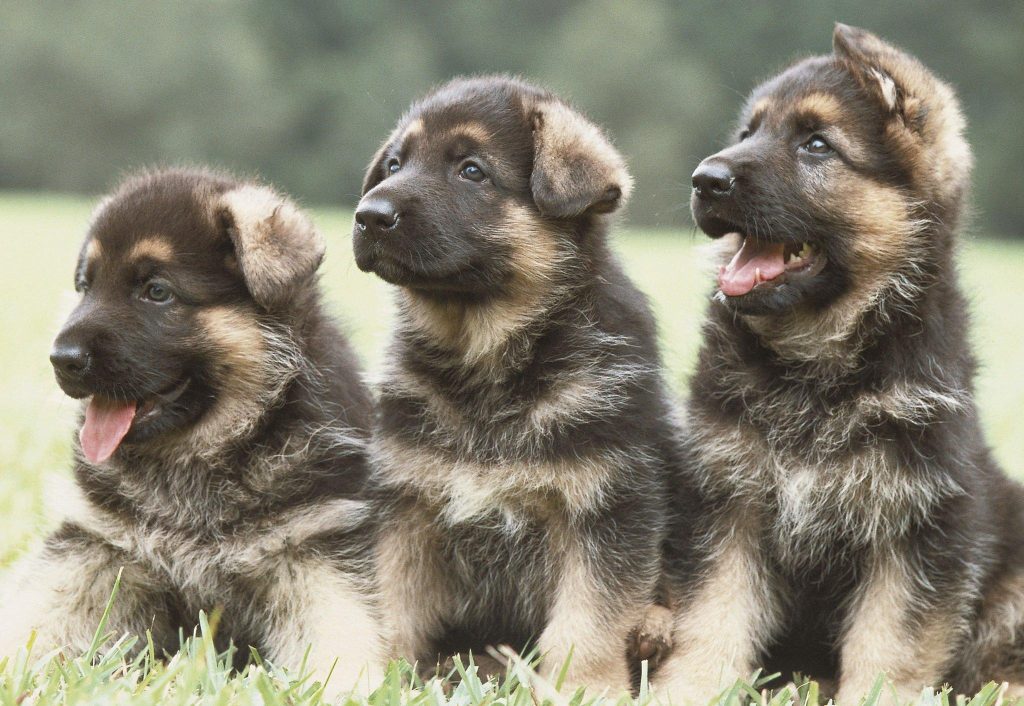
1. Caloric Needs
Puppies are growing machines, and they require a lot of energy to fuel that growth. On average, a German Shepherd puppy might need about twice as many calories per pound of body weight as an adult. However, these numbers can vary based on activity level and individual metabolism.
2. Frequency
Young puppies should be fed more frequently to sustain their energy levels. A general rule of thumb is to feed them 3 to 4 times a day until they are around 6 months old, after which you can gradually switch to twice-daily meals.
3. Nutrient Ratios
Protein is the building block of growth, and your puppy will need plenty of it. Look for dog food that offers a balanced ratio of protein, fats, and carbohydrates. Essential fatty acids are crucial for brain development, and minerals like calcium and phosphorus support bone growth.
4. Monitoring and Adjustment
Keep a close eye on your puppy’s weight and adjust the portions accordingly. If you notice excessive weight gain or loss, consult your veterinarian for tailored advice. Remember, too much rapid growth can lead to joint issues later in life.
Nutrition is a pivotal part of your German Shepherd puppy’s early life and sets the stage for their future health. By following these feeding guidelines, you’re not just filling their bowl; you’re filling their life with the potential for long-term well-being.
How Much Should Adult German Shepherds Eat?
As your German Shepherd transitions from the playful puppy stage into adulthood, their dietary needs also evolve. Adult German Shepherds, generally between the ages of 1 and 7, require a well-balanced diet to maintain their high energy levels, strength, and overall health. But what does a balanced diet for an adult German Shepherd look like? Let’s dive in.

1. Caloric Needs
An average adult German Shepherd may require around 20 to 30 calories per pound of body weight per day, depending on their activity level. Working dogs might require more calories to fuel their high-energy tasks, while more sedentary pets may need fewer.
2. Frequency
Adult German Shepherds usually do well with two meals a day. This feeding schedule helps maintain their energy levels throughout the day while preventing potential bloating, a condition to which the breed is susceptible.
3. Nutrient Ratios
Protein should still be a cornerstone of their diet, but unlike puppies, adults require a balanced intake of protein, fats, and carbohydrates. Look for high-quality meat sources like chicken, beef, or fish, and consider whole grains and vegetables for fiber and other nutrients.
4. Monitoring and Adjustment
Adult German Shepherds can be prone to weight gain if not adequately exercised or fed properly. Regular vet check-ups can help you monitor their weight and make any necessary adjustments to their diet.
Adult German Shepherds are as active and agile as they come, and feeding them a balanced diet is the foundation of their well-being. Remember, the right diet doesn’t just keep their tails wagging; it’s a critical component of their overall health and longevity.
How Much Should Senior German Shepherds Eat?
As your German Shepherd gracefully ages, their dietary needs undergo yet another shift. Senior German Shepherds, usually those 8 years and older, require special nutritional attention to support their aging bodies and to maintain a good quality of life. So what should you be putting in your older dog’s bowl? Let’s explore.
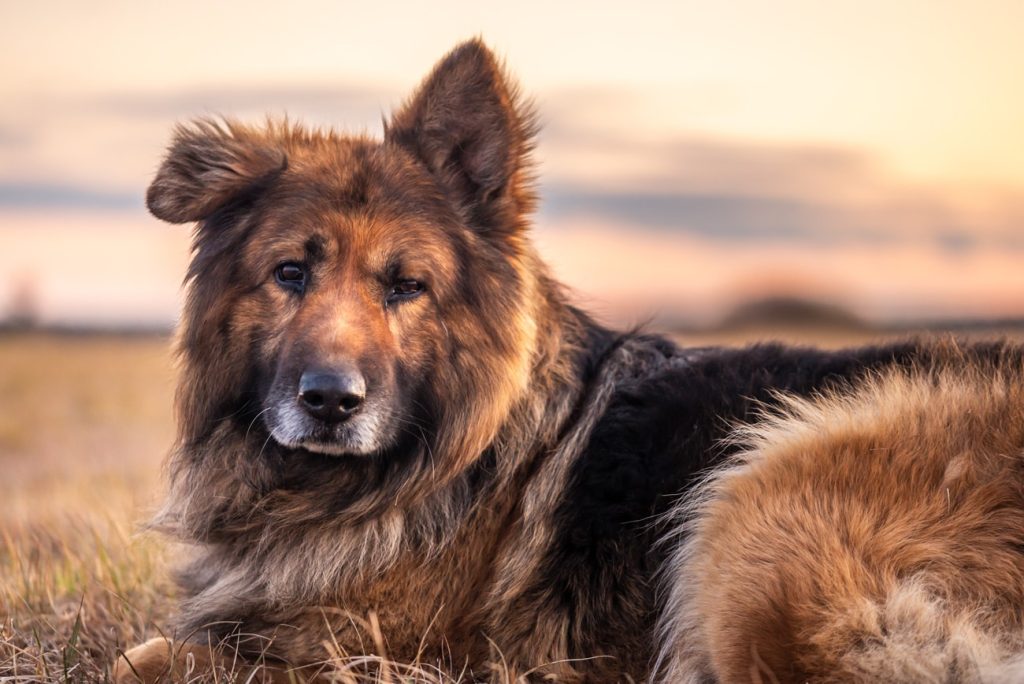
1. Caloric Needs
Senior German Shepherds generally have a slower metabolism and are less active than their younger counterparts. As a result, they may require fewer calories to prevent unwanted weight gain. Caloric intake should be adjusted based on their weight and activity level, so it’s best to consult your vet for specific guidelines.
2. Frequency
While younger dogs often do well with two meals a day, older dogs with slower metabolisms might benefit from smaller, more frequent meals. This can help regulate blood sugar and manage weight.
3. Special Nutritional Considerations
Aging comes with its own set of health challenges like joint issues, reduced muscle mass, and dental problems. Diets rich in omega-3 fatty acids can help with inflammation, while a moderate protein intake can support muscle retention. Softer foods or kibble might be easier on sensitive teeth.
4. Monitoring and Adjustment
Regular veterinary check-ups are even more crucial for senior German Shepherds. This helps monitor any potential age-related conditions like arthritis or diabetes and adjust their diet accordingly.
Feeding a senior German Shepherd is not just about maintaining their current state but enhancing their quality of life. Proper nutrition can make a significant difference in their well-being, letting them enjoy their golden years with the energy and joy they’ve always had.
Common Foods to Keep at a Distance
While we all love treating our German Shepherds to some human food every now and then, it’s important to know that not all foods are safe for them. In fact, some everyday foods can be harmful or even deadly. So, before you slide that table scrap into your dog’s bowl, let’s talk about some common foods to steer clear of.
1. Chocolate
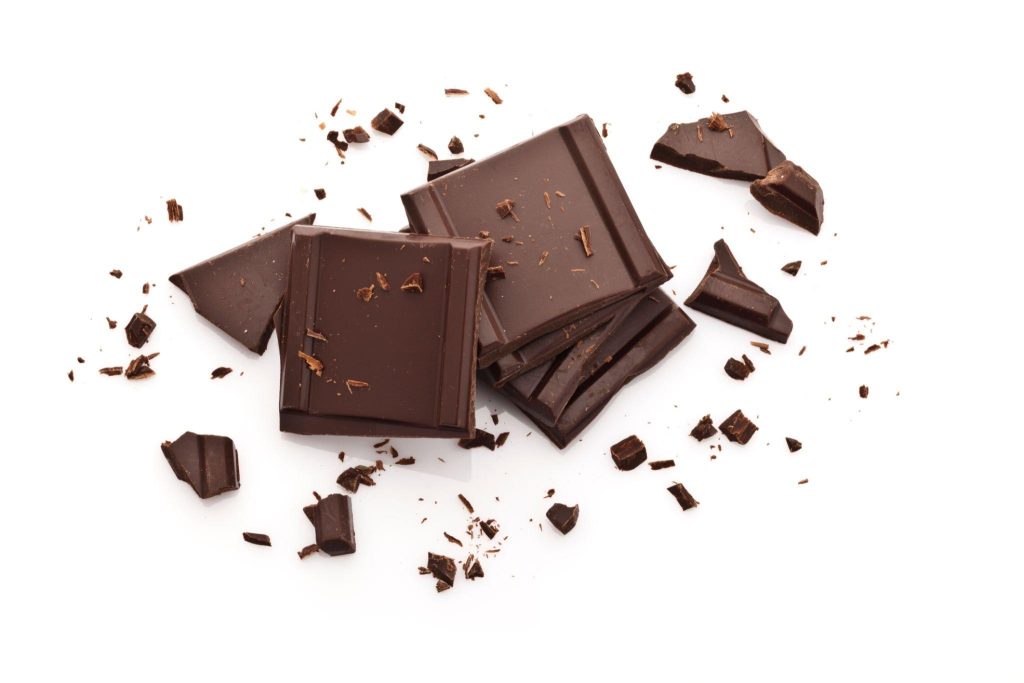
Most dog owners know that chocolate is a no-go, but it’s worth reiterating. Theobromine, a compound found in chocolate, can cause symptoms ranging from diarrhea to seizures in dogs.
2. Grapes and Raisins

These seemingly harmless fruits can cause kidney failure in German Shepherds, and even a small amount can be lethal. It’s best to keep these far away from your pet.
3. Onions and Garlic
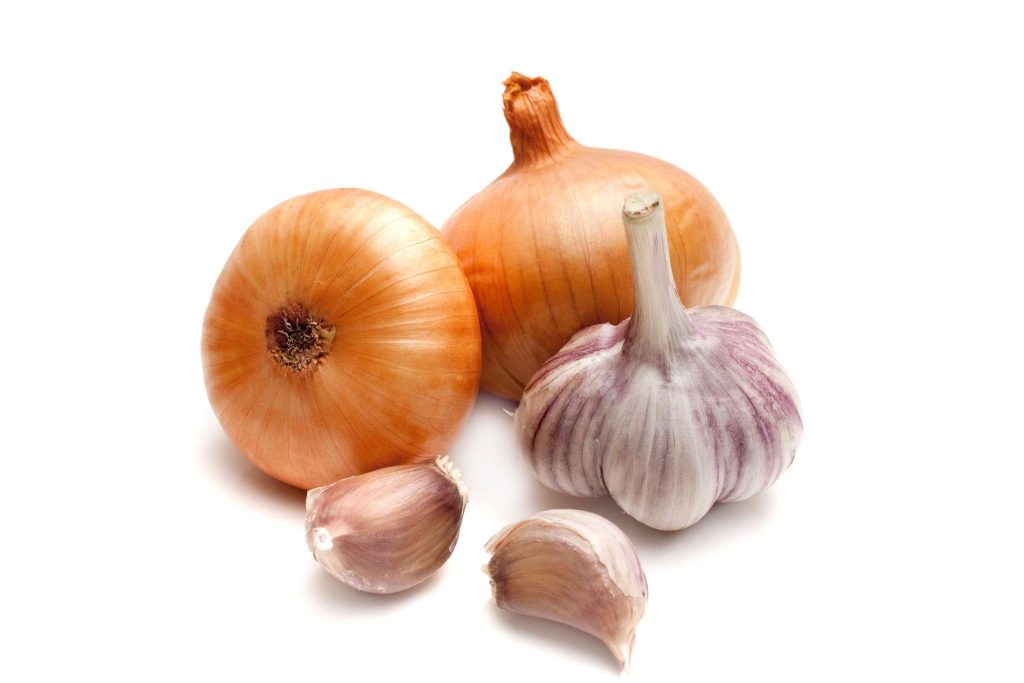
These kitchen staples can be harmful in both raw and cooked forms. They contain compounds that can damage red blood cells, leading to anemia.
4. Xylitol
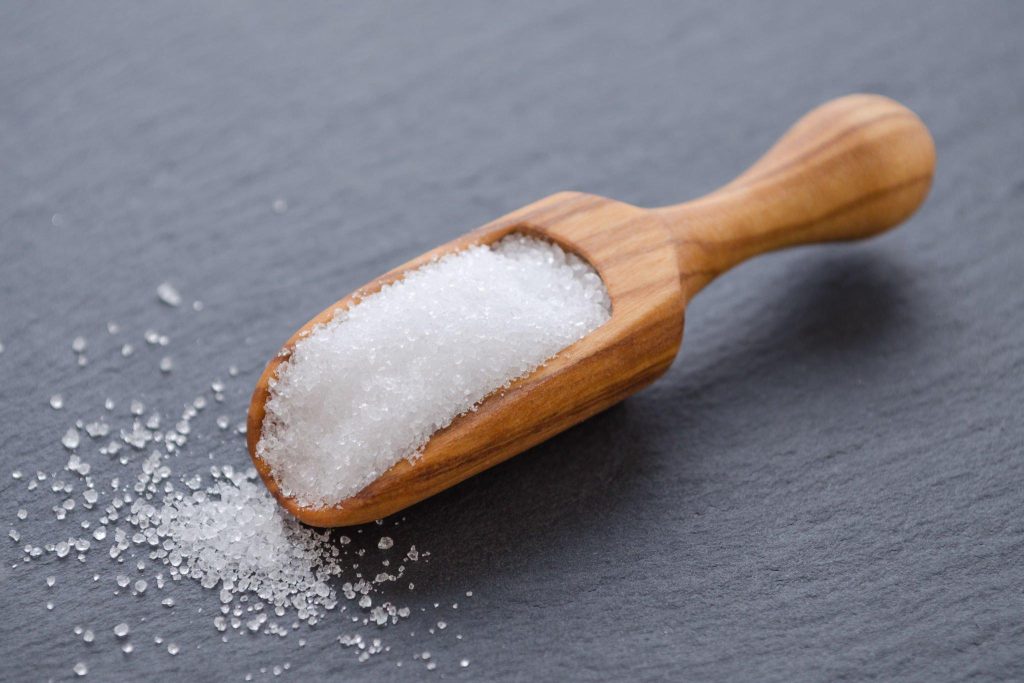
Found in sugar-free gum, toothpaste, and various low-sugar or sugar-free products, Xylitol can cause a rapid insulin release, leading to hypoglycemia (low blood sugar) and liver failure.
5. Alcohol

While it might seem funny to offer your dog a sip of your beer, even small amounts of alcohol can lead to toxic poisoning, affecting your dog’s liver and brain.
6. Caffeine

Similar to chocolate, caffeinated products can have disastrous effects on your German Shepherd. This includes coffee, tea, and certain energy drinks.
Knowing what foods to avoid is just as crucial as knowing what to feed your German Shepherd. The right diet keeps them healthy, but being aware of these dangerous foods can actually save their life. To keep your loved ones safe, it’s actually important to dive deep into this topic of foods that German Shepherds can’t eat.
Adjusting Diet Based on Health Conditions
Health conditions can greatly impact what your German Shepherd should or shouldn’t eat. Whether it’s a chronic issue or a temporary ailment, adjusting your dog’s diet can often help manage symptoms and improve their well-being. Let’s examine how to tailor your German Shepherd’s meals based on common health conditions.
1. Allergies
If your German Shepherd is suffering from food allergies or intolerances, a hypoallergenic diet may be in order. Common allergens include beef, chicken, and grains like wheat and corn. In such cases, switching to novel proteins or grain-free foods can provide relief.
2. Obesity
Excess weight can lead to a host of other issues, such as joint pain and diabetes. A lower-calorie, high-fiber diet can help your dog shed those extra pounds while keeping them full and satisfied.
3. Diabetes
For diabetic German Shepherds, a diet that’s low in fat and high in complex carbohydrates can help regulate blood sugar levels. Timed and measured meals are crucial for managing diabetes effectively.
4. Joint Issues
Arthritis and other joint problems are common in older German Shepherds. Diets rich in omega-3 fatty acids and glucosamine can offer some relief by reducing inflammation.
5. Digestive Problems
If your dog has a sensitive stomach or other digestive issues, a diet that includes easily digestible proteins and fibers can help. Probiotics and prebiotics can also be beneficial.
Tailoring your German Shepherd’s diet based on specific health conditions is not only proactive but often necessary for their well-being. Always consult your veterinarian for personalized advice, especially if you’re dealing with more severe or chronic conditions.
Consult Your Vet for a Tailored Diet Plan
While blogs and articles offer a wealth of information, there’s no substitute for personalized guidance from a qualified veterinarian. When it comes to your German Shepherd’s diet, a vet can offer invaluable advice tailored to your dog’s unique needs. Why is consulting your vet so crucial? Let’s dive into the reasons.
1. Individualized Assessment
Every German Shepherd is different, and their dietary needs can vary based on factors like age, activity level, and health conditions. A vet can conduct a thorough examination and even run tests to determine the best diet plan.
2. Specialized Nutritional Advice
Whether it’s food allergies, weight issues, or age-related nutritional needs, your vet can prescribe specific types of food, supplements, or even medication to address the concern effectively.
3. Ongoing Monitoring
Diet isn’t a set-and-forget aspect of pet care. It needs periodic reassessment, especially as your dog ages or if their health condition changes. Regular vet visits can help adjust the diet based on your German Shepherd’s evolving needs.
Consulting your vet for a tailored diet plan ensures that your German Shepherd is getting the most accurate and beneficial nutritional guidance. It adds an extra layer of care and attentiveness that can make a world of difference in your dog’s overall health and happiness.
Frequently Asked Questions (FAQ)
The topic of feeding your German Shepherd can bring up a lot of questions, especially for new owners. In this FAQ section, we aim to answer some of the most commonly asked questions to make mealtime a breeze for you and your furry friend.
1. How Many Times a Day Should I Feed My German Shepherd?
- For puppies: 3-4 times a day until they are around 6 months old.
- For adults: Generally, twice a day.
- For seniors: Smaller, more frequent meals might be beneficial.
2. Can I Feed My German Shepherd Human Food?
While some human foods are safe for dogs, it’s best to stick to dog food that is specifically designed for their nutritional needs. If you do want to treat them, consult your vet for safe options.
3. What Should I Do If My German Shepherd Is Overweight?
If your German Shepherd is overweight, a diet rich in fiber and low in calories, along with increased physical activity, can help. Consult your vet for a personalized weight management plan.
4. Are Raw Diets Good for German Shepherds?
The topic of raw diets is divisive. Some swear by its benefits, while others raise concerns about nutritional balance and the risk of bacteria. If you’re considering this, consult your vet for a tailored approach.
5. Can I Change My German Shepherd’s Food Brand?
Yes, but do it gradually to avoid upsetting their stomach. A typical recommendation is to mix 25% of the new food with 75% of the old for a few days and gradually increase the ratio.
Navigating the world of dog nutrition can be complex, but we hope this FAQ section clears up some of your queries. When in doubt, consult your vet for the most accurate and personalized advice.
Conclusion
Feeding your German Shepherd the right way is more than just a responsibility; it’s a critical aspect of their well-being and happiness. From understanding the nutritional needs of puppies and adults to tailoring diets for seniors and specific health conditions, proper feeding goes a long way in ensuring a long, healthy life for your furry friend.
As we’ve seen, portion sizes, types of food, and even timing can make a significant impact on your German Shepherd’s health. Always consult your vet for a tailored diet plan and regularly monitor your dog to make adjustments as needed. Remember, a well-fed German Shepherd isn’t just a happy dog; it’s a healthy one, too!
Thank you for joining us on this comprehensive journey through the world of German Shepherd nutrition. We hope this guide equips you with the knowledge and tools to make informed decisions for your pet’s dietary needs. Here’s to happy tails and happy trails with your well-fed German Shepherd!
